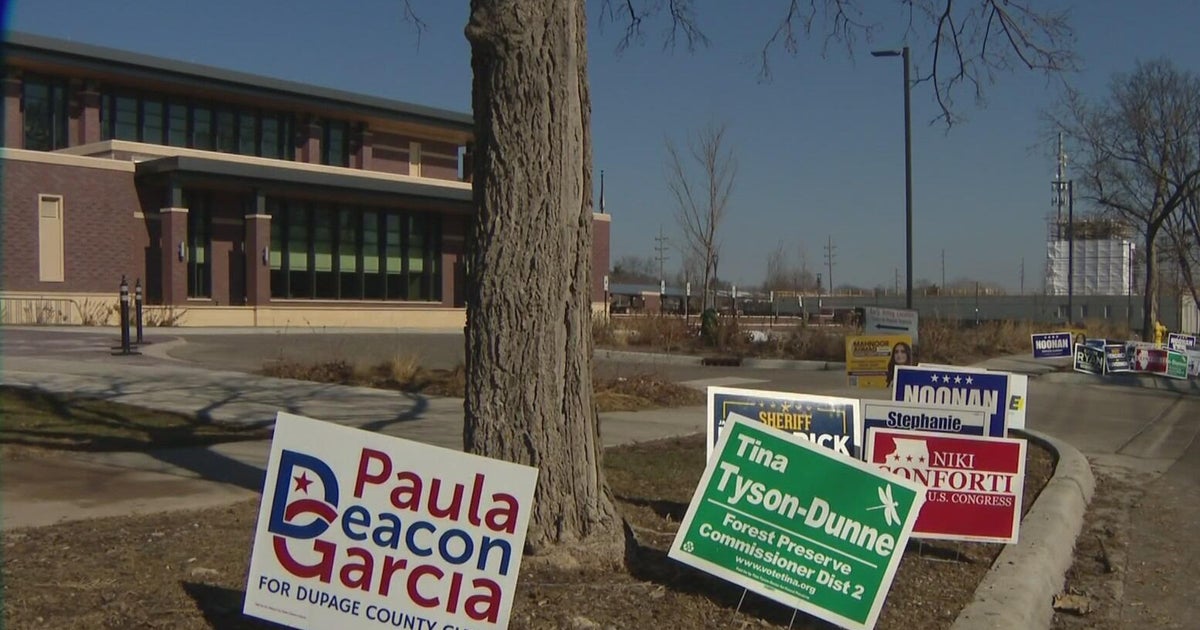College Towns In Texas And Across U.S. Plan Challenge To 2020 Census Results
NORTH TEXAS (CBSDFW.COM/AP) — Some college towns plan to challenge the results of the 2020 U.S. Census, claiming they were shortchanged because the pandemic forced students off campus. They say the population count could cost them federal money and prestige.
When the pandemic struck the U.S. around spring break of 2020, it set off an exodus in college towns as classrooms went virtual almost overnight. The sudden departure of tens of thousands of students from these communities made it difficult to count them in the census, which began at almost the same time.
Because universities were able to provide the Census Bureau with records for students living in dorms and other on-campus housing, off-campus students "ran the risk of being missed," said Dudley Poston, a sociology professor at Texas A&M University.
An Associated Press review of 75 metro areas with the largest share of residents between 20 and 24 showed that the census results fell well below population estimates in some cases but also exceeded them significantly in others.
Officials in college towns are not sure why there was such variation, and they are reviewing whether it was due to the timing of spring breaks, outreach efforts or the percentage of students living on campus versus off. Another variable is whether schools cooperated when the Census Bureau asked for records on off-campus students. Only about half of schools did so since many had privacy concerns or did not have the requested information.
"You can kind of go crazy thinking about the variations," said Douglas Shontz, a spokesman for the Borough of State College, home of Penn State University, where officials believe the census missed 4,000 to 5,800 residents.
Counting university students has always been a difficult task, even before the pandemic. The Census Bureau's rule of thumb was that students should be counted at their college addresses, even if the coronavirus temporarily sent them elsewhere on the April 1 date that provides a benchmark for the census.
In State College, home to Penn State's 39,000 students, the bureau's message prior to the pandemic was that people should be counted "where they sleep most of the time," which was confusing to students after they went home. As a result, neighborhoods dominated by students had the lowest census response rates in the borough, said State College Borough Manager Tom Fountaine in a memo to city officials.
Some metro areas such as Tuscaloosa, Alabama, and Huntsville, Texas, had census counts that were 6% above their estimates, according to the AP review. The cities are respectively home to the University of Alabama and Sam Houston State University.
Even so, Tuscaloosa Mayor Walt Maddox believes thousands of off-campus students were overlooked, and the city plans to challenge the numbers. The 2020 count put the city 400 people shy of 100,000 residents, which could cost it access to certain federal funding that is available only to cities with 100,000 residents or more.
Cities, states and tribal nations can start contesting their numbers in January through the bureau's Count Question Resolution program, but it looks only at number-crunching errors, such as an overlooked housing unit or incorrect boundaries. The program only revises figures used for population estimates over the next decade that help determine federal funding. The Census Bureau won't revise the numbers used for determining how many congressional seats each state gets nor the redistricting data used for drawing congressional and legislative districts.
"While we are anticipating more cases because of the many challenges the 2020 census went through, the scope is going to be limited, and the data products are going to be limited," Census Bureau official Matthew Frates told Texas demographers and economists during a presentation last summer.
There have been victories in the past, such as the city of Houston's effort to get its population count revised from 2.09 million to 2.1 million residents after the 2010 census. The change triggered the addition of two city council seats.
"It's going to be an uphill battle, but it's worth a try," said Shontz in State College.
(© Copyright 2021 CBS Broadcasting Inc. All Rights Reserved. The Associated Press contributed to this report.)







